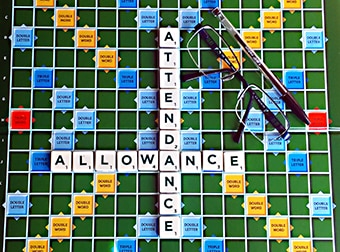This allowance is a benefit for older people who may need extra help to stay independent at home due to an illness or disability.
It is assessed purely on your disability or health condition and your care or supervision needs.
It is NOT means-tested and so it does not matter what you earn or how much you have in savings.
You do not have to spend Attendance Allowance on a carer. It can be used for home help or equipment to help them stay independent.
The amount you can claim is:
£57.30 a week if you need help either in the day or at night
£85.60 a week if you need help both in the day and at night.
These rates apply from April 2018 to April 2019.
The benefit is usually paid every 4 weeks.
There are some other upsides to Attendance Allowance too:
- Claiming Attendance Allowance won’t reduce any other income you receive.
- It’s tax-free.
- If you’re awarded Attendance Allowance, you may become entitled to other benefits, such as Pension Credit, Housing Benefitor Council Tax Reduction, or an increase in these benefits if you’re already receiving them.
- Attendance Allowance isn’t means-tested so it doesn’t matter how much income and savings you have.
You can claim Attendance Allowance if you meet all the following criteria:
- are 65 or over (if you’re under 65, you may be eligible for Personal Independence Paymentinstead)
- could benefit from help with personal care, such as getting washed or dressed, or supervision to keep you safe during the day or night
- have any type of disability or illness, including sight or hearing impairments, or mental health issues such as dementia
- have needed help for at least 6 months. (If you’re terminally ill you can make a claim straight away.)
How do I claim Attendance Allowance?
- Get a claim form by calling the Attendance Allowance helpline on 0800 731 0122(textphone: 0800 731 0317), you can download a claim form from the GOV UK website:
AA Download forms
https://www.gov.uk/attendance-allowance/how-to-claim
Fill in the form. Be really clear about how your illness or disability affects your life.
- Before you send it in attach any supporting information, such as GP letters, your care plan, or prescription lists.
- Send in the form to the address on the form or submit it online.
- The Department for Work and Pensions may contact you to ask for more information or arrange for a doctor to visit. It’s a good idea to prepare for that visit by writing things down that you would want the doctor to know about.
- You will get a letter with the decision on whether or not you’ll get Attendance Allowance, how much, and from what date.
- If you’re not happy with the outcome, you can appeal.
Tips to help with the Attendance Allowance claim form
- Don’t leave things out, even if you feel you can manage well enough.
- Describe any accidents or falls you have had.
- Explain the effects of all your disabilities and health conditions, and how they interact with each other.
- List things that you struggle to do unaided, even if you have developed ways to cope.
- If an activity takes you much longer than it would somebody without a disability, or if it’s difficult to do safely, include this too.
- Say if you need reminding or encouraging to do things, as this also counts as help.
- Focus on how frequently you need help. For example, if you need help looking after your appearance, this could add up to six or seven times a day, if you include help to check your clothes are clean after a meal, help to find a coat and matching shoes, and so on.
- Give plenty of information in your own words about your personal circumstances. Don’t worry if you need to repeat yourself.
- Bear in mind that Attendance Allowance doesn’t usually take into account problems with housework, cooking, shopping and gardening.
Sources Age UK

